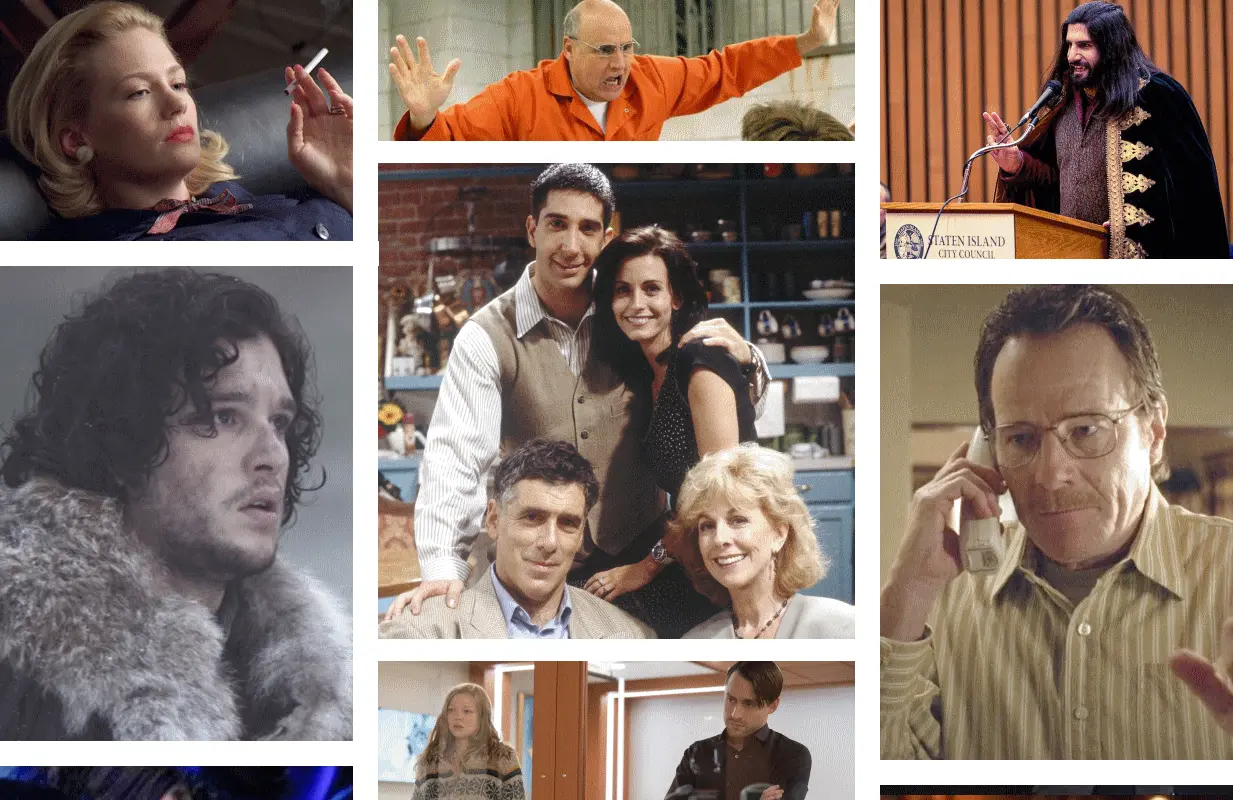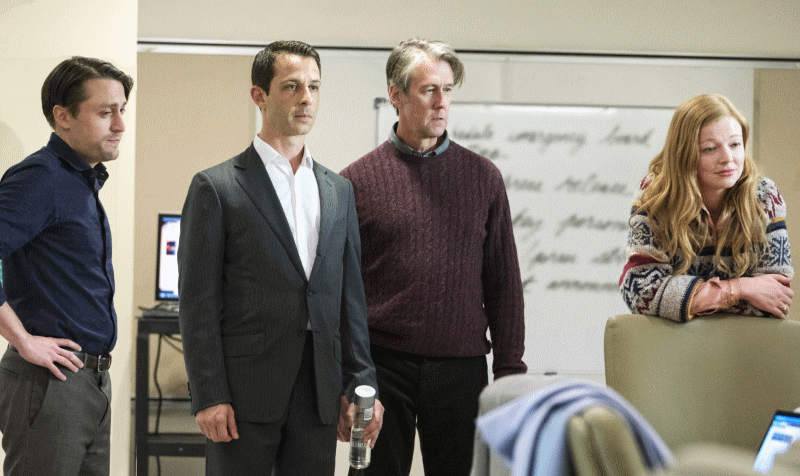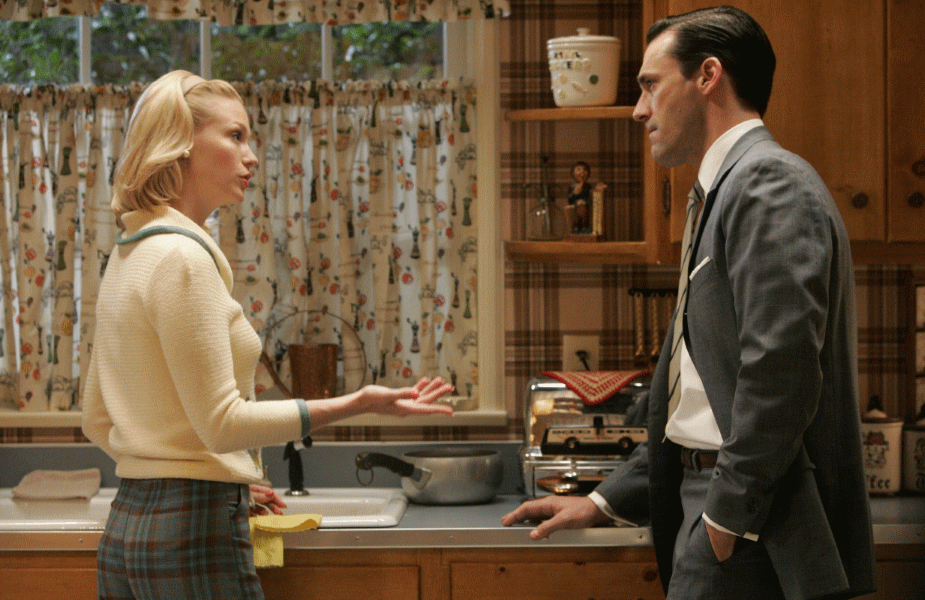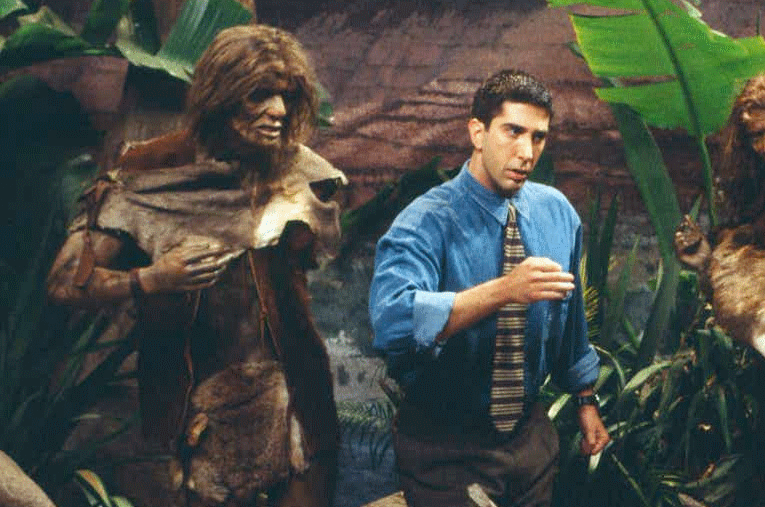Great 2nd Episodes Are What Enduring TV Shows Are Made Of
-
 (Photos: AMC, FOX, HBO, NBC, FX)
(Photos: AMC, FOX, HBO, NBC, FX)If the job of a TV pilot is to prove that the concept of a series is compelling, then the job of the second episode is to make viewers believe that there’s enough gas in the tank to move the show along from week to week. It could be argued that the latter is the tougher job. Pilots thrive on unanswered questions and unresolved plot threads; the subsequent installments have to start actually answering and resolving those things, plus they’re invariably given a smaller budget and tighter filming schedule.
Watching an underwhelming second episode can feel like waking up the morning after a regrettable one-night stand: Why was I into this? Was it just the special effects and that surprising movie star cameo? Do I even have anything in common with this show? On the other hand, a really stellar second outing has the potential to evoke the opposite kinds of feelings: Wow, it wasn’t just the Oscar-winning pilot director and the splashy locations! I’m really in love with this series! That's why we’re here to acknowledge and celebrate eight shows that have – to extend the metaphor – successfully pulled off the second stage of seduction.
Succession: “Sh*t Show At The F*ck Factory”

Proving that creator Jesse Armstrong and Succession’s excellent writers and directors were willing to take big risks from the get-go, the series abandons (temporarily, at least) its focus on wealth porn and location-hopping and sets its second episode almost entirely inside a hospital. Fortunately, the urgency of the plot – patriarch and CEO Logan Roy (Brian Cox) has suffered a massive stroke, and his children need to work out a corporate game plan by the time the stock market opens – keeps us far too riveted to think about the private jets we’re not seeing. It’s also the perfect storyline to showcase and develop the characters and their fraught relationships, going far beyond the broad strokes of the pilot to probe nuances and idiosyncrasies. Yes, Roman (Kieran Culkin) is still a jerk, but his awkward request to Cousin Greg (Nicholas Braun) to retrieve a used sweater from Logan’s apartment is proof that he’s a human jerk. Speaking of Greg, that character’s overly-broad introduction in the pilot gets nicely, and hilariously, fleshed out as he tries to figure out which cards to play among a family that was born with sleeves full of aces. But it’s Kendall (Jeremy Strong) who anchors the episode with his simultaneously cold- and hot-blooded pursuit of the corporate throne he was previously denied, and even at this early stage, Strong displays a huge percentage of the tonal range that has helped make him, Kendall, and Succession itself so irresistible. If all that weren’t enough, this episode also marks the debut of Gerri (J. Smith-Cameron), quickly climbing to fan-favorite status by delivering an impossibly dense financial bad-news speech and ending it with a pitch-perfect “Don’t jump.”
Mad Men: “Ladies Room”

Although this episode was filmed a full year after the series’ virtuoso pilot – woe be the hair, makeup, and continuity staffers who had to make everything match – “Ladies Room” perfectly picks up where “Smoke Gets In Your Eyes” left off, finally giving us a good look at Betty Draper (January Jones) and the rest of the family life that, at the pilot’s end, we were surprised to learn Don (Jon Hamm) even had. More broadly, this outing delivers on the promise of its title, delving into the realities that women faced in the even-more-man’s-world of the early ‘60s. “What do women want?” asks Don, directly referencing the conundrum that famously haunted Freud. “Who cares?” replies Roger (John Slattery), pretty well summing up the brick wall that Betty, Peggy (Elisabeth Moss), and the rest of the show’s non-male population are up against. Deftly woven into this throughline is the question of Don’s backstory, which he obfuscates just as skillfully as he writes commercial catchphrases. Is there a true mystery there, or is he just insecure about his past? We don’t know for several more episodes that the answer is “both,” and in the meantime Don pulls yet another compelling tagline out of his personal baggage, announcing to the world that women want “any excuse to get closer,” even as he himself refuses to comply. Functionally speaking, this episode is also notable for telling us just about everything we need to know about how Sterling Cooper operates via the quick tour that Paul (Michael Gladis) gives Peggy at lunchtime – shortly before coming on to her, of course.
What We Do In The Shadows: “City Council”
Comedies can have a particularly steep learning curve when it comes to insinuating themselves into audiences’ hearts; we laugh the hardest at characters we know the best, and 22 minutes isn’t much to base a long-term relationship on. As such, even some of the most indelible sitcoms of the past decades (The Office, Parks & Recreation, Happy Endings) didn’t find their sea legs in time to make this list. But in “City Council,” What We Do In The Shadows gets so weird and so specific so quickly that it’s impossible to resist. Creator Jemaine Clement (Flight of the Conchords) is a proven expert in mining maximum hilarity from the lowest of stakes, and it’s harder to get them much lower than a weekday-evening Staten Island administrative meeting. Of course, the show’s core group of vampires treats this paragon of regional dullness as an epic battle for power and glory, and that’s a pretty great recipe for giggles – especially when the council representatives themselves, and the actors portraying them, are so intent on not being in on the joke. Even though the series has changed course enough over the years that “City Council” no longer feels quite in line with its present structure, this episode remains outstanding on its own merits and proof that the show’s cast and creative team were nobly committed to generating bizarre laughs from the get-go.
Battlestar Galactica: “33”
Perhaps this one deserves an asterisk since it’s technically the first regular-season episode of the series, but the miniseries that launched BSG is definitely canon, so “33” is at least in some form the second chapter of the story. As such, it brilliantly takes the sprawling world-building and massive cast introduced in the opening hours and streamlines it all into one of TV’s great nail-biters. The titular number refers to the minutes it takes the enemy Cylons to catch up to the space-bound remainder of the human race each and every time they try to escape; needless to say, this proves both terrifying and exhausting for our already-bedraggled heroes. In his series bible, showrunner Ronald Moore expressed a commitment to telling clear stand-alone stories in each episode while weaving in longer arcs – as opposed to the “chapter”-based format of other sagas – and “33” certainly delivers on that promise. You could enjoy this episode just fine even if you never watched anything that came before or after… but why deprive yourself of everything else BSG has to offer?
Breaking Bad: “Cat’s In The Bag…”
With a series as consistently thrilling as this one, it would be easy to say that all the episodes are great and leave it at that, but “Cat’s In The Bag…” holds particular importance in helping to define Breaking Bad’s overall narrative flow. To wit, the high-octane thrills of the pilot – culminating in Walt (Bryan Cranston) and Jesse (Aaron Paul) attempting to kill a pair of rival drug dealers in self-defense – are karmically balanced by the staggering human consequences that this episode starkly presents. One of our antiheroes’ opponents is dead and must be disposed of; the other survived and must be dealt with. But Walt and Jesse aren’t really up to the task, with the former being too kind and the latter too incompetent, and they end the episode with more problems than they started. We would see this pattern play itself out for the duration of the series, with bigger and bigger victories constantly negated by ever-more-horrifying setbacks – each one inevitably requiring a significant moral compromise to surmount.
Friends: “The One With The Sonogram At The End”

Another comedy that defied the odds to get its ducks in a row almost immediately, Friends used its second outing to lay an impressive amount of lasting framework. Recurring character-wise, we meet Jack and Judy Geller (Elliott Gould and Christina Pickles), Gunther (James Michael Tyler, starting off as a background player), Carol and Susan (Anita Barone and Jessica Hecht), and Ross’s unborn son Ben. Only one of these roles – Carol – was recast, which is damned impressive by sitcom standards. (Some TV nerd trivia: the late Barbara Miller, the Warner Bros. casting executive who helped bring together Friends’s legendary ensemble, would later work her magic to locate the perfect pair of Gilmore Girls.) “Sonogram” also introduces a number of essential character features, like Ross’s (David Schwimmer) dorky museum job, Monica’s (Courteney Cox) obsession with cleanliness, and Chandler’s (Matthew Perry) penchant for hitting the word “be.” Of course, none of this world-building would mean much if it were devoid of laughs, and the episode delivers the literal red meat on that front when Monica bakes Rachel’s (Jennifer Aniston) tainted engagement ring into a lasagna.
Game of Thrones: “The Kingsroad”
If your memories of Game of Thrones are tarnished by the frenetic pacing and awkward fan-service of its final seasons, maybe stop posting angry memes and just revisit the period when the show still delighted in slow-food storytelling. Like the series itself, “The Kingsroad'' is all about journeys and what they reveal about those who undertake them. Tyrion (Peter Dinklage) joins Jon Snow (Kit Harington) on his voyage north to the Wall; Ned (Sean Bean) faithfully follows King Robert (Mark Addy) south to Kings Landing, with daughters Sansa and Arya (Sophie Turner and Maisie Williams) in tow; and Daenerys (Emilia Clarke) treks to Vaes Dothrak with her merciless husband Drogo (Jason Momoa) and his army. Ned, Jon, and Dany are all bound by duty – whether chosen or forced upon them – and the episode deftly builds character by exploring how each of these people probes the limits of their own agency within that framework. While Ned and Jon are both disillusioned, Dany finds a measure of hope and the beginnings of a path to power. Game of Thrones had a million balls in the air from the jump – that was basically its brand – and “The Kingsroad” proved that the show could meaningfully develop its myriad storylines without ever feeling too scattered. Even if we didn’t quite have everyone’s name straight at this phase, we were fully invested.
Arrested Development: “Top Banana”
We’ll close out with one more comedy. After a just-fine pilot (somewhat stifled in the humor department by the amount of narrative legwork it had to do), AD quickly found its footing with this far-more-focused outing. If you don’t remember why this episode is both hilarious and important in establishing the series’s monopoly on multi-use catchphrases, here are seven words to jog your memory: There’s always money in the banana stand. The various ways that the non-jailed contingent of the Bluth family misinterpret that one piece of advice from George Sr. (Jeffrey Tambor) are more than enough to generate 22 minutes of hijinks and cement AD’s place in the sitcom pantheon.
Nick Rheinwald-Jones is Co-Artistic Director of Spy Brunch LLC, a Los Angeles immersive theatre company. He has written about film and TV for Vulture, The AV Club, Decider, and Previously.TV.
TOPICS: Succession, Arrested Development, Battlestar Galactica (2004), Breaking Bad, Friends, Game of Thrones, Mad Men, What We Do in the Shadows